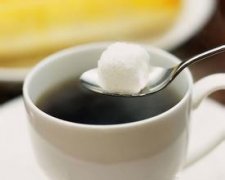The stroke rate of middle-aged and elderly people who drink coffee in the morning is greatly increased.

After getting up, would you like a cup of coffee to refresh your mind? Middle-aged and elderly people who drink little coffee may have a heart attack if they wake up with a cup of coffee in the morning if they have a risk factor for heart disease, Taiwan's United Daily News reported.
Anna, professor at Brown University? In a study published in the journal Epidemiology, Beilin said that middle-aged and elderly people who drank little coffee had a significantly higher risk of stroke an hour after drinking coffee in the morning, and that there were more than three risk factors for heart disease, such as diabetes, high blood pressure, smoking, and people who did little exercise.
However, people who drank more than four cups of coffee a day did not increase their risk of heart disease. Beilin's team believes that heavy coffee drinkers may be accustomed to caffeine, so their cardiovascular system is not affected.
The study involved 503 Costa Ricans who had their first stroke between 1994 and 1998. The subjects' coffee consumption and overall diet hours and days before stroke, as well as medical history, lifestyle and background, were included in the study.
People who drank an average of less than one cup of coffee a day were four times as likely to have a heart attack an hour after drinking it in the morning. Drinking two or three cups a day increases your chances by 60%. There is no difference between people who drink more than four drinks.
The team believes that the stimulating effect of caffeine may promote nervous system activity, causing fat deposited in the walls of arteries to fall off, blocking blood flow to the heart and causing heart disease.
Beilin said that for people who have risk factors for heart disease and do not drink much coffee, morning coffee may be the "last straw" and this group had better consider giving up drinking coffee.
Important Notice :
前街咖啡 FrontStreet Coffee has moved to new addredd:
FrontStreet Coffee Address: 315,Donghua East Road,GuangZhou
Tel:020 38364473
- Prev

Coffee and health knowledge about caffeine
Whether coffee affects health is a topic of great concern to many people, and scientists have been debating it for many years. But so far, scientific research has not found conclusive evidence that moderate consumption of coffee is harmful to human health. Between 1970 and 1980, the results of this study were usually negative. Extensive media coverage makes people feel uneasy about the caffeine in their diet
- Next

Don't forget the basic knowledge of drinking coffee for cup drinkers.
A survey conducted by Professor Jundian Guano, a Japanese scholar, confirmed that coffee drinkers had lower glutamic pyruvic transaminase than non-coffee drinkers (the level of glutamic pyruvic transaminase is an important sign of liver disease). The conclusion is that coffee can protect the liver of drinkers. reduce the damage of alcohol to the liver. Not long ago, researchers in the United States studied 125000 people and found that drinking a cup of coffee a day can cause liver cirrhosis.
Related
- Beginners will see the "Coffee pull flower" guide!
- What is the difference between ice blog purified milk and ordinary milk coffee?
- Why is the Philippines the largest producer of crops in Liberia?
- For coffee extraction, should the fine powder be retained?
- How does extracted espresso fill pressed powder? How much strength does it take to press the powder?
- How to make jasmine cold extract coffee? Is the jasmine + latte good?
- Will this little toy really make the coffee taste better? How does Lily Drip affect coffee extraction?
- Will the action of slapping the filter cup also affect coffee extraction?
- What's the difference between powder-to-water ratio and powder-to-liquid ratio?
- What is the Ethiopian local species? What does it have to do with Heirloom native species?

